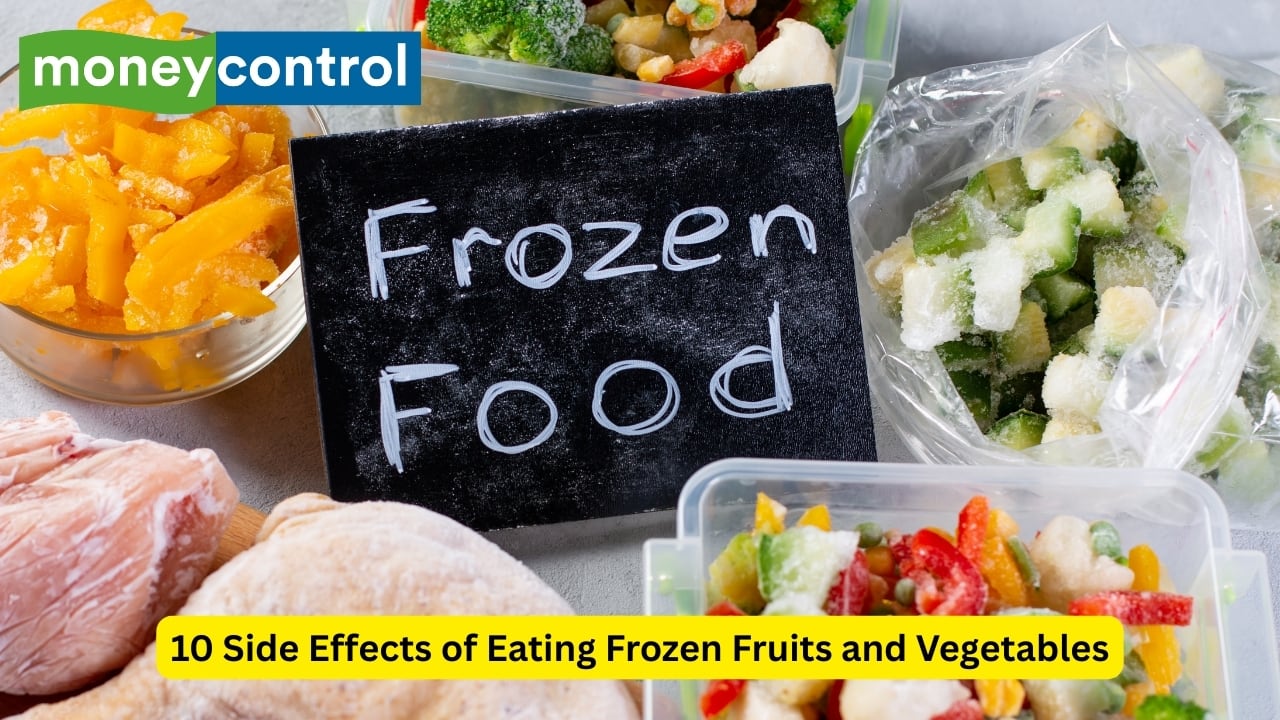Health
Uncovering the Hidden Risks of Eating Frozen Fruits and Vegetables

Eating frozen fruits and vegetables is a common practice for many, but it may come with unforeseen risks. While these products are often marketed as healthy and convenient alternatives to fresh produce, experts warn that regular consumption can lead to various side effects affecting digestion, nutrition, and overall health.
Frozen fruits and vegetables typically enjoy a longer shelf life and ease of storage compared to their fresh counterparts. The freezing process helps preserve essential nutrients to some extent, but it does not completely halt nutrient degradation over time. According to nutrition expert Dr. Ayesha Malhotra, there are several reasons to reconsider the frequent consumption of frozen produce.
Nutritional Concerns of Frozen Produce
One major issue is the potential for nutrient loss. While freezing slows down the degradation of nutrients, vitamins such as Vitamin C, B-complex vitamins, and folate can diminish during long-term storage. Fresh fruits and vegetables generally provide more nutrients than their thawed counterparts, making them a superior choice.
Additionally, many frozen fruits, such as berries and peaches, are often packed in syrup or sugar solutions to enhance flavor and texture. This added sugar contributes extra calories, which can lead to weight gain and increase the risk of insulin resistance and diabetes. Similarly, pre-seasoned frozen vegetables may contain high levels of sodium, potentially resulting in hypertension and other cardiovascular issues.
Quality and Safety Issues
The freezing process can also alter the texture and taste of fruits and vegetables. Cell walls may break down, leading to a mushy consistency that can make produce less palatable. Improper storage may result in freezer burn, where moisture evaporates, creating dry spots and diminishing both taste and nutritional value.
Safety is another crucial consideration. If frozen fruits and vegetables are not stored at a constant temperature or thawed properly, harmful bacteria such as Listeria and Salmonella can proliferate, posing serious health risks. Proper handling and storage are essential to minimize the risk of foodborne illnesses.
Moreover, some processed frozen items may contain chemical preservatives, like sulfites, which are used to maintain color and texture. These additives can trigger allergic reactions in sensitive individuals and may not be suitable for those with asthma or other chemical sensitivities.
Another concern is the hidden calories found in frozen meals that include vegetables as ingredients. These meals often come with sauces, oils, and spices that can significantly increase calorie, fat, and sodium content, outweighing the health benefits of the vegetables themselves.
Rethinking Your Frozen Produce Choices
While frozen fruits and vegetables can be a convenient option, relying heavily on them may lead to a decrease in the consumption of more nutrient-dense fresh produce. Fresh options typically provide better taste and hydration benefits due to their higher water content.
In light of these factors, it may be worth exploring alternatives. Fresh fruits and vegetables not only tend to be more nutritious but also offer superior flavor and texture, encouraging a more balanced diet.
As always, individuals should consult healthcare professionals for personalized dietary advice. This article is intended for informational purposes and should not replace qualified medical opinion.
-

 World4 months ago
World4 months agoSBI Announces QIP Floor Price at ₹811.05 Per Share
-

 Lifestyle4 months ago
Lifestyle4 months agoCept Unveils ₹3.1 Crore Urban Mobility Plan for Sustainable Growth
-

 Science3 months ago
Science3 months agoNew Blood Group Discovered in South Indian Woman at Rotary Centre
-

 World4 months ago
World4 months agoTorrential Rains Cause Flash Flooding in New York and New Jersey
-

 Sports3 months ago
Sports3 months agoBroad Advocates for Bowling Change Ahead of Final Test Against India
-

 Top Stories4 months ago
Top Stories4 months agoKonkani Cultural Organisation to Host Pearl Jubilee in Abu Dhabi
-

 Science4 months ago
Science4 months agoNothing Headphone 1 Review: A Bold Contender in Audio Design
-

 Top Stories4 months ago
Top Stories4 months agoAir India Crash Investigation Highlights Boeing Fuel Switch Concerns
-

 Sports3 months ago
Sports3 months agoCristian Totti Retires at 19: Pressure of Fame Takes Toll
-

 Business4 months ago
Business4 months agoIndian Stock Market Rebounds: Sensex and Nifty Rise After Four-Day Decline
-

 Politics4 months ago
Politics4 months agoAbandoned Doberman Finds New Home After Journey to Prague
-

 Top Stories4 months ago
Top Stories4 months agoPatna Bank Manager Abhishek Varun Found Dead in Well









